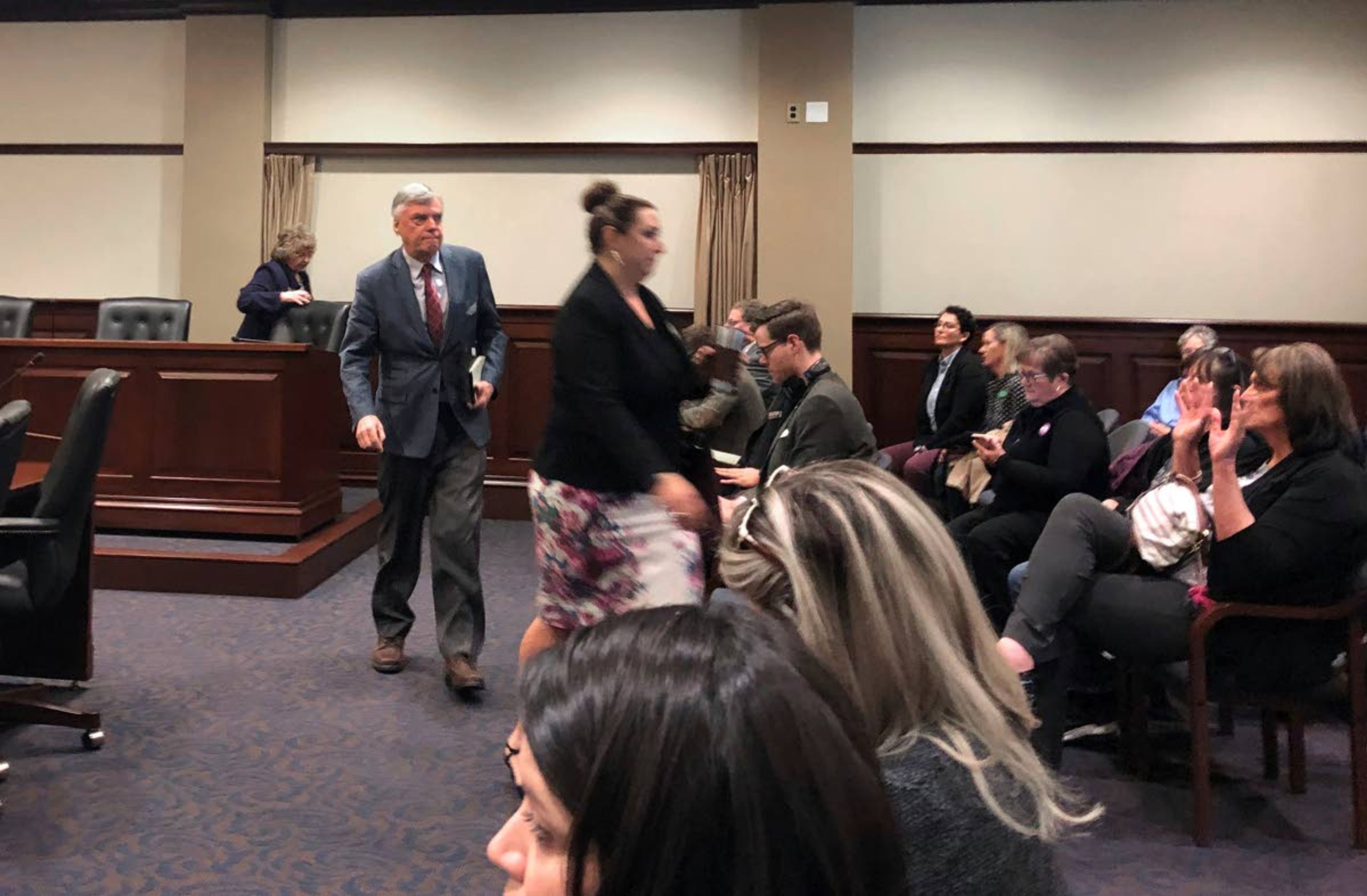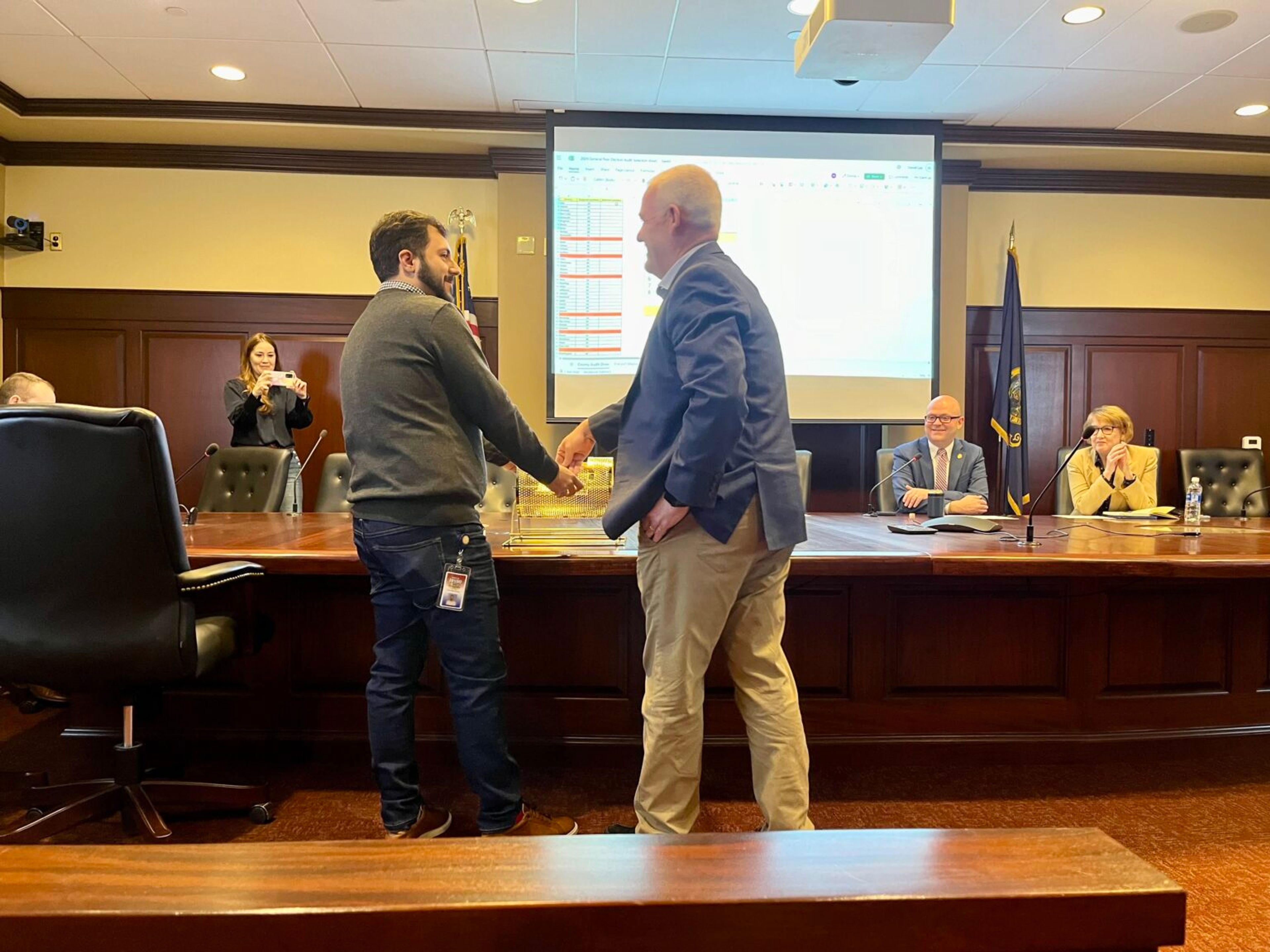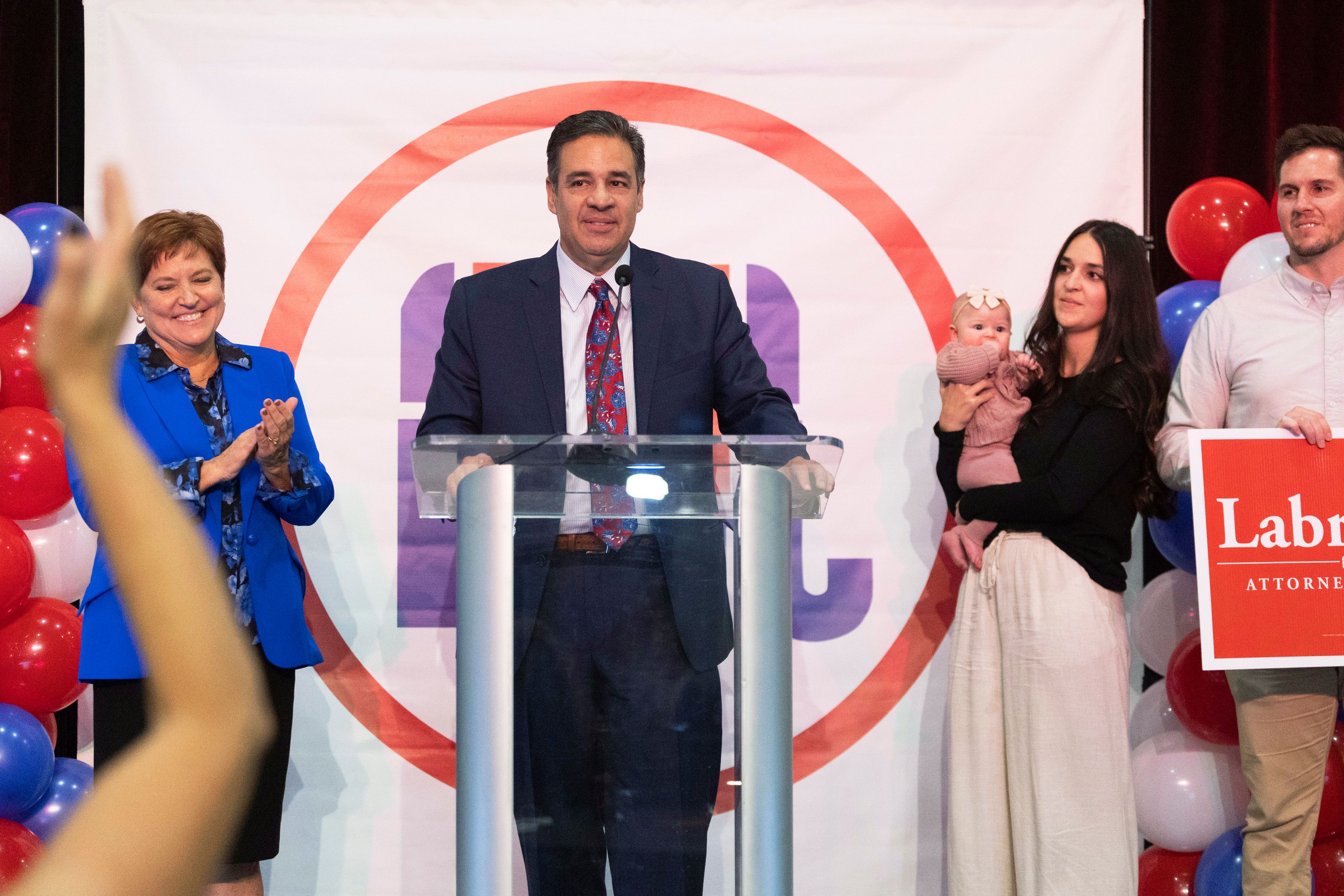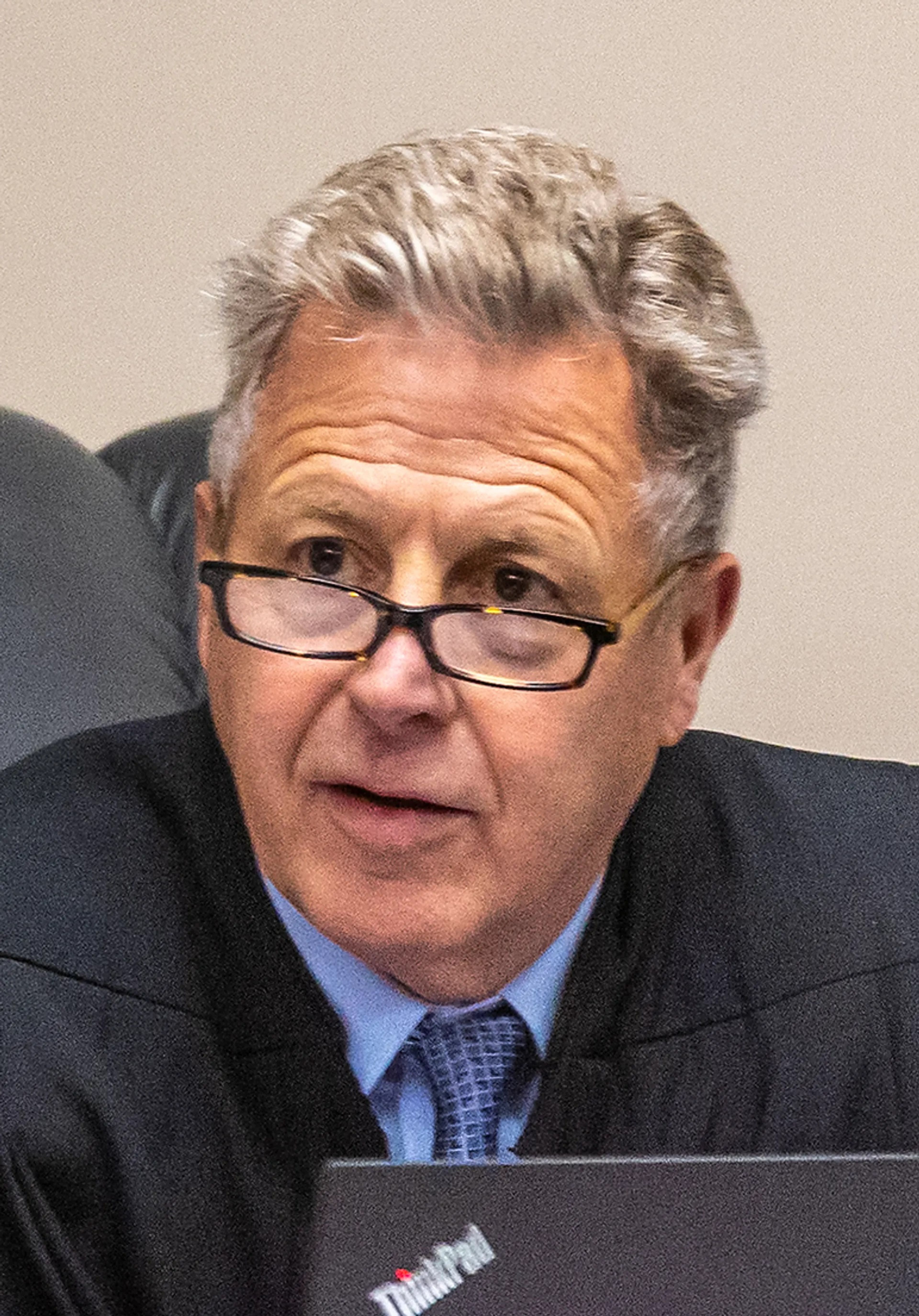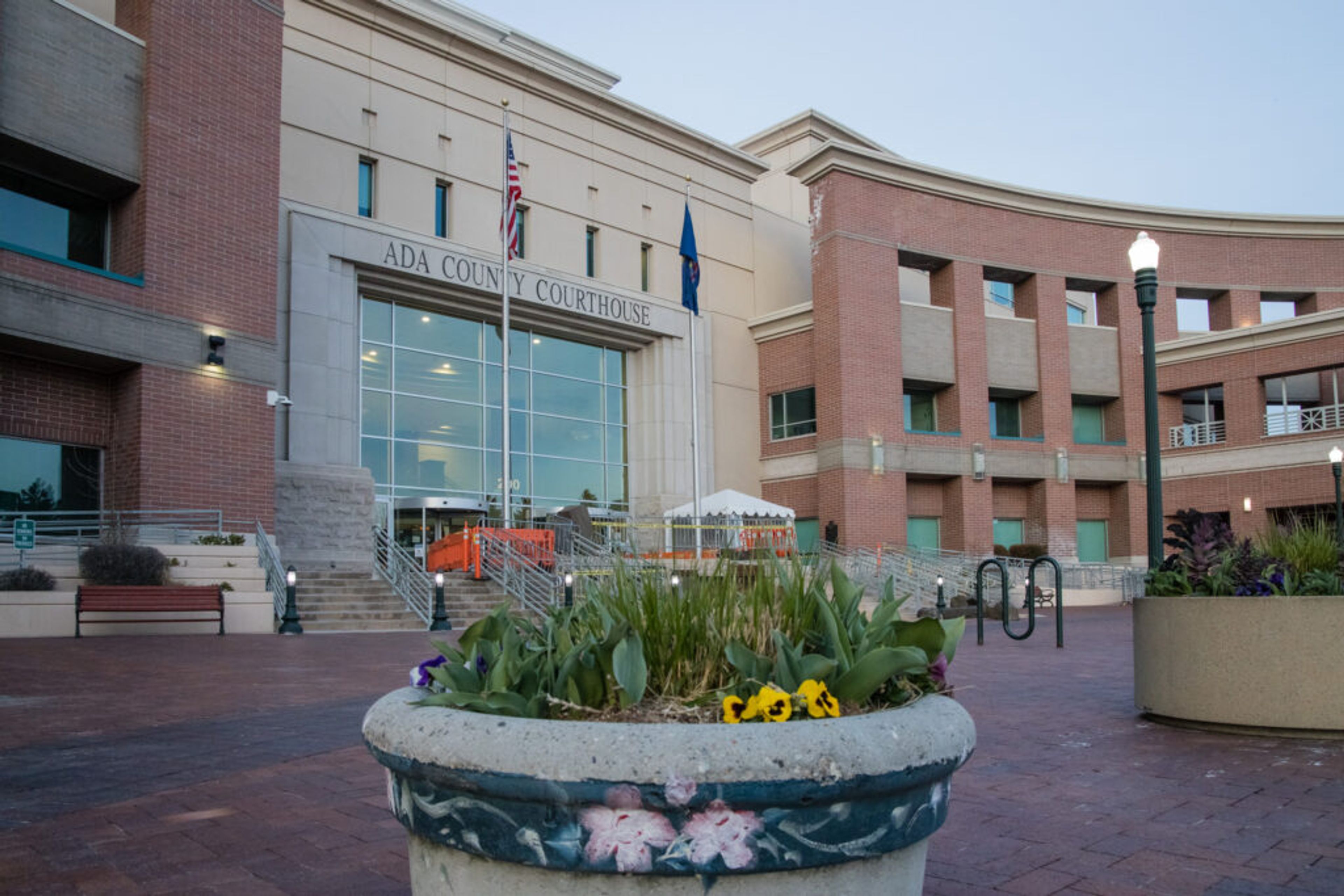Push for proposed constitutional amendment prompts protest
Measure would add seventh, partisan member to Idaho’s redistricting commission
BOISE — Idaho House Republicans capped a busy week by “ramrodding” a proposed constitutional amendment through committee Friday.
The move prompted protests from the public and a walkout by Democrats, as well as threats to disrupt House floor sessions for the remainder of the session.
The action began in the House State Affairs Committee, which recommended approval of a plan to add a seventh, partisan member to Idaho’s redistricting commission.
The bill was only introduced two days ago. A dozen people testified at Friday’s hearing, with several saying they just heard about it earlier that morning.
“Ramrodding a constitutional amendment through in 48 hours is neither typical or fair,” Yvonne Sandmire said. “Redistricting is something Idaho does right; the system is balanced and fair. If partisan gerrymandering is allowed, it will certainly be challenged in court. Voters are really, really tired of partisan politics. Please don’t let this partisan, harmful bill move forward.”
Redistricting in Idaho is handled by an independent, six-member commission that voters put in place via constitutional amendment in 1993.
The commission is tasked with redrawing legislative and congressional district boundaries every 10 years to reflect changes in population. The goal is to maintain the “one person, one vote” standard implied by the Equal Protection Clause of the U.S. Constitution.
Right now, the commission is equally divided between Republicans and Democrats. Any redistricting plan must be approved by a minimum of four members, which forces at least some degree of bipartisanship.
However, Rep. Steven Harris, R-Meridian, thinks having an even number of commission members results in too “messy” a process. He points to the last redistricting in 2011-12, when one commission deadlocked and a second commission approved a plan that was later rejected by the Idaho Supreme Court.
“This bill attempts to end the gridlock that has plagued past reapportionment efforts,” Harris said.
Harris’ proposal would add a seventh member to the commission. The person would be elected by five of the state’s seven constitutional officers — the governor, lieutenant governor, controller, treasurer and superintendent of public instruction. He excludes the secretary of state and attorney general, as they might get involved in the process later as a result of a lawsuit.
Given that it would amend the Idaho Constitution, Harris’ resolution requires a two-thirds vote in the House and Senate. It would then go onto the 2020 general election ballot, where a simple majority vote could approve or reject the measure.
Harris noted that the bill doesn’t change any other statutory or constitutional requirements for reapportionment, including the need to equalize populations between districts, preserve traditional neighborhoods and communities of interest and minimize county splits.
“With regard to how this would swing (redistricting results), really, there’s very little room for gerrymandering or other types of foul play,” he said.
That drew a rebuke from retired judge Karen Lansing, who said gerrymandering is exactly what can be expected from the proposal.
“We shouldn’t understate the effect this could have on Idaho elections,” she said. “For a decade or more we’ve heard controversies about gerrymandering in other states. It’s been done by both parties and has resulted in what should be embarrassing, shameful, ridiculous districts … I’m disheartened that we now have this proposal, which would create the possibility of Idaho joining those states where gerrymandering results in representatives getting to choose their voters, rather than voters choosing their representatives.”
If avoiding gridlock is really the intent of the bill, Lansing said, then having the commissioners themselves choose a seventh member might be a better, less partisan solution.
“But I’d also like to say that I don’t perceive that having an even number of commissioners is really a problem,” she said. “The fact that there can be deadlocks forces all members to work together and negotiate a compromise that’s reasonable and acceptable to everyone. That ought to be the objective of the commission.”
Stephanie Hanson apologized to the committee for showing up in sweatpants, saying she was “literally on my way to the gym when I found out about the hearing.”
“I thought (this issue) was so critical I had to come and testify,” she said.
While she agreed the current redistricting process “can be messy,” she didn’t see that as justification for stacking the deck.
“The whole point of a democratic republic is that people with different ideologies have an equal voice and create better ideas,” Hanson said. “If we change (the current reapportionment method), we’ll be pulling another chunk out of the armor of our democracy.”
Despite her change of plans, though, she still didn’t make it to the hearing fast enough. Even before any public testimony was taken, Rep. Joe Palmer, R-Meridian, made a motion to send the resolution to the House floor with a favorable recommendation.
“I can’t understand why anyone would be afraid to put something before the people and let them vote on it,” he said. “I have no fear of that. I’m willing to deal with the circumstances and live with that.”
The only person to testify in favor of the bill was Russ Hendricks, representing the Idaho Farm Bureau Federation.
“We appreciate Rep. Harris bringing this forward,” he said. “Our members have adopted a policy in support of adding a seventh member to the commission for the very reason Rep. Harris laid out. Unfortunately, the way the commission is set up at this point, it’s almost doomed to failure when it has an even number of members.”
Rep. Julianne Young, R-Blackfoot, said she appreciated the interest in this subject, but she was dismayed that some people “seem to have incorrect information about what this bill does.”
“I sincerely believe Rep. Harris is genuine in his desire to come to a fair solution for a concern he genuinely holds,” she said. “As we go forward, I hope the public makes sure the information they’re getting is based in the reality of facts.”
Democrats were incensed by the bill, as well as by how quickly the public hearing was scheduled.
“We haven’t heard from many people in our state, we haven’t heard from people in different areas,” said Rep. John Gannon, D-Boise. “This has moved way too fast. It’s not fair to the people of Idaho to make this a partisan, Washington, D.C.-style commission.”
Gannon’s motion to delay the hearing until next week died on a party-line vote. After listening to the public testimony, he and Democratic Reps. Elaine Smith, D-Pocatello, and Brooke Green, D-Boise, walked out of the meeting.
Republicans then approved Palmer’s motion on a unanimous voice vote.
During the House floor session that followed the meeting, Democrats forced bills to be read in their entirety.That’s a well-established, though relatively rare, delay tactic that lawmakers use to express displeasure when they feel the legislative process hasn’t served the public well.
“Our most important job is to represent the people of Idaho,” Green said. “The hearing for this bill was extremely suspect. A last-minute hearing on a Friday for a bill this (important) is irresponsible.”
Spence may be contacted at bspence@lmtribune.com or (208) 791-9168.
